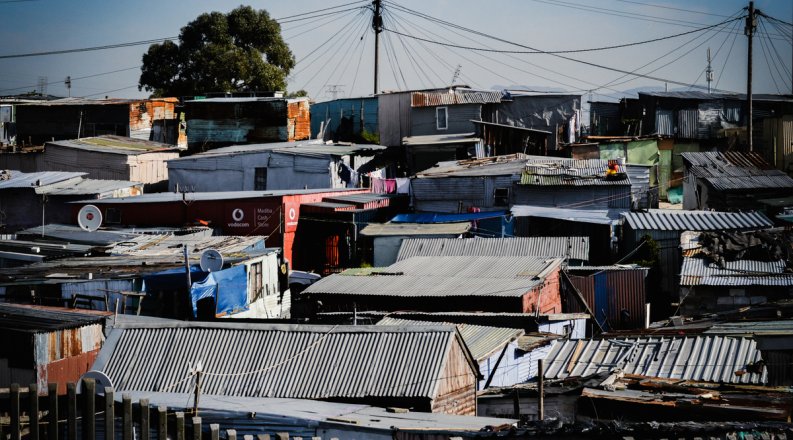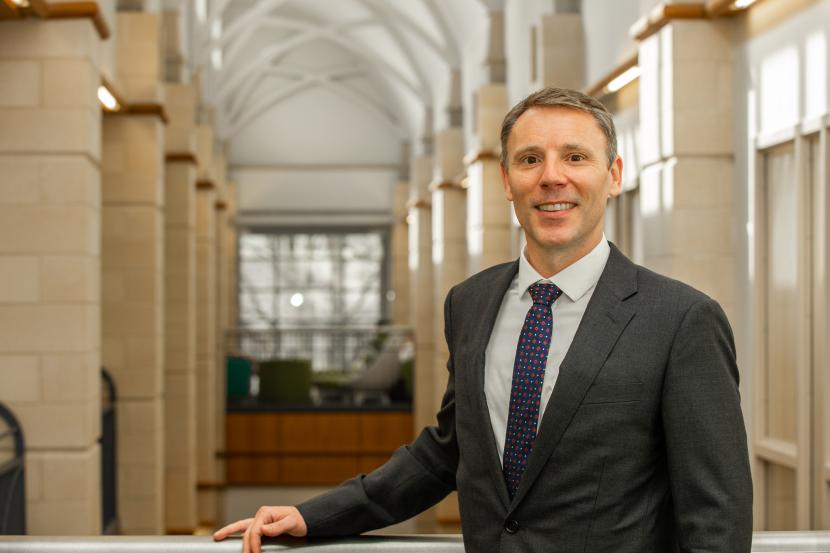During crises, leaders rely on researchers to gather intel that will help them decide how to respond. Sometimes research produces satellite images, data bases or on-the-ground interviews. But rarely is enough information available to get a full picture of what's happening to a population impacted by war, famine, genocide or natural disasters.
A team of Old Dominion University researchers aims to demonstrate the value of interdisciplinary research to help decision-makers understand not only the information they're able to access, but the value of what information might be missing. They have received $1.6 million from the Department of Defense (DoD) to dig into the challenges posed by what former Secretary of Defense Donald Rumsfeld famously called "the known knowns and known unknowns" that influence decisions.
The project, titled "What's Missing? Innovating Interdisciplinary Methods for Hard-to-Reach Environments," is funded through the Minerva Research Initiative, which supports a network of faculty investigators to strengthen the DoD's connections within the social science community. The goal is to help the DoD better understand and evaluate future challenges.
Over the next three years, the ODU team, led by principal investigator Erika Frydenlund, will try to understand how researchers can access informal settlements to collect data that can inform policy. Their project will bring researchers from four international universities together to study the same sites, all using different research methodologies. To approximate the conditions of crisis areas, they'll be conducting research in international districts designated by experts as "slums" - areas experiencing urban poverty with a lack of infrastructure, governance, economic opportunities and the typical social protections like first responders and medical care.
"It's hard to gather truly interdisciplinary research in any conditions, but especially when you're trying to conduct research in a hard-to-reach environment, due to conflict or hostile regimes," Frydenlund said. "During a conflict event, like what we're seeing unfold in Ukraine, it's very difficult to gather qualitative data that can inform decisions by host countries and those working with refugee populations."
Five teams will set out to answer the same question in the same site in Khayelitsha in Cape Town, South Africa. They'll work together to determine "ground truth" - information that is known to be true based on observation or measurement.
The five teams will be:
- Visual sociology (led by Jennifer N. Fish, ODU)
- Institutional ethnography (led by Hanne Haaland and Hege Wallevik, University of Agder, Norway)
- Citizen science (led by Frydenlund and South Africa consultant)
- Survey (led by Katherine Palacio, Universidad del Norte, Colombia)
- Web and social media (led by Michele Weigle and Michael L. Nelson, ODU)
Once their data is collected, modeling and simulation tools (led by Jose J. Padilla, ODU) will help them see what key findings are lost if a type of research is removed, revealing how the "ground truth" may be less clear without certain data.
Academics at York University in Canada (led by Michaela Hynie) will be studying the researchers, examining how the teams collaborated and negotiated "ground truth." Based on their findings, the teams will reassess and replicate the project in a new location, seeing if they can apply lessons learned in South Africa to Villa Caracas in Barranquilla, Colombia.
"You never get this chance to send a bunch of smart people into the field to do a scavenger hunt to learn truth," Frydenlund said. "We have nothing to lose. No matter what, we will gain knowledge."
She is excited to share this opportunity with graduate students. "Interdisciplinary work is the way of the future, and training graduate students in interdisciplinary communication is important," she said.
Through their collaboration, the researchers aim to show leaders why each type of research matters when planning military or humanitarian interventions, or simply trying to understand how people are being affected.
Russia's war in Ukraine offers an example of two hard-to-reach environments where research methods to discover "ground truth" are hampered. While Ukraine poses research challenges as an active war zone, Russia poses different challenges as it becomes increasingly isolated. World leaders trying to understand how the war is being interpreted in Russia have little access to interdisciplinary research; the media is controlled by the state, many foreign reporters and researchers have left, and citizens are not able to share updates on most popular social media networks. Without that access, Frydenlund said, it's hard to know how the war and sanctions are being perceived, and what actions might yield desired results.
The project is the second Minerva grant received by researchers with the Storymodelers team at the Virginia Modeling, Analysis and Simulation Center. In 2019, the team began work on its study, "Computational Framework for Assessing Absorptive Capacity," intended to better understand the ability of host regions to manage an influx of displaced populations, including refugees and asylum seekers.
The Storymodelers team uses computational science, engineering and other technical approaches to collect, analyze and map human systems. Their work generates data to better understand global challenges, including displaced populations.
Related News Stories
Science Pubs Talk on April 28 Focuses on ‘The Upside of Downtime’
Presenter Andrew Bennett, who researches work-related fatigue and stress, was recently named one of the 50 Best Undergraduate Business Professors in the country by Poets & Quants. (More)
Old Dominion University Joins Every Campus a Refuge
The University is hosting its first refugee family this spring as part of a national movement to provide support on campuses. (More)
ODU Awarded $400,000 to Grow Diverse Cybersecurity Workforce Pipeline
The University is partnering with Virginia Tech and Norfolk State University to prepare ROTC and DoD-aspiring students for post-graduate careers. (More)






